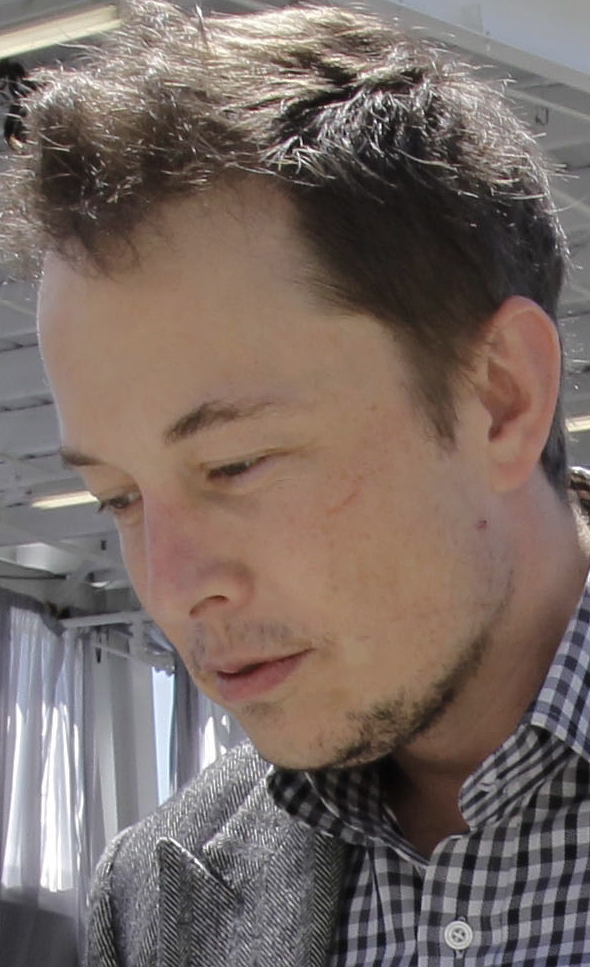ORLANDO, Fla. — SpaceX – the rocket company that last year became the first ever to ship cargo to the International Space Station – now is on the verge of taking over one of the old space shuttle launch complexes at Kennedy Space Center.
NASA said Friday that it was awarding SpaceX, a Hawthorne, Calif.-based company, the rights to negotiate for a long-term lease to run Launch Complex 39A. It’s one of the two huge pads that have been used for everything from Apollo to space shuttle rockets at Kennedy Space Center.
The announcement is a win for one Internet billionaire-turned-space-entrepreneur, Elon Musk, and a loss for another, Jeff Bezos. Musk co-founded PayPal and then invested his money to found SpaceX, and Bezos founded Amazon.com and then Blue Origin, based in Kent, Wash.
Blue Origin, which also sought LC-39A, complained in May after NASA issued its guidelines for bid proposals. In September, Blue Origin formally asked the U.S. Government Accountability Office to investigate whether NASA’s guidelines gave SpaceX an inside track.
But on Thursday the GAO sided with NASA. And on Friday NASA announced its selection: SpaceX.
“We actually haven’t signed a lease with them yet. It’s certainly our intent to do so,” NASA spokesman Allard Beutel said.
NASA is not disclosing any details about the potential lease, saying all is to be negotiated.
In an email, SpaceX spokeswoman Hannah Post said the company is “pleased to have been selected by NASA to enter into final negotiations for the use and operation of the historic Launch Complex 39A at Kennedy Space Center. As previously stated, SpaceX will gladly accommodate other commercial providers interested in using launch complex 39A for NASA human-rated orbital spaceflight.”
LC-39A was first used to launch the unmanned Apollo 4 into space in 1967. Apollo 11, carrying Neil Armstrong and Buzz Aldrin to the moon, also blasted off from there. So did the first space shuttle flight, that of Columbia. LC-39A was last used to launch the final shuttle mission – of Atlantis – on July 8, 2011.
It’s not in great shape. NASA is rebuilding its other major launch complex, LC-39B, but essentially mothballed LC-39A, disassembling much of it and providing minimal maintenance.
“It’s not in a hazardous situation, but it has not been kept up,” Beutel said.
SpaceX made history in May 2012 when it became the first private company to launch a spacecraft – its Dragon capsule taken to space by its Falcon 9 rocket – to the space station and back. The company now is a NASA cargo hauling contractor for the space station. SpaceX also is in the running to become the first private company to launch a human spaceflight, carrying American astronauts to the space station late this decade.
Blue Origin also is competing for NASA’s astronaut business. Though it may be a year or two behind SpaceX, it remains within NASA’s timetable for development of a private astronaut taxi service.
Blue Origin has not yet disclosed whether it intends to further appeal the GAO decision, or what its “plan B” might be for possibly launching rockets from Kennedy.
Dale Ketcham, director of strategic alliances for Space Florida, the public-private agency trying to boost the space industry along Florida’s Space Coast, suggested Blue Origin should still have ample opportunity at Kennedy.
“This community is excited about both programs, about this new industry, but we’re pleased a decision was made. Now people can get to work and flights can be scheduled,” Ketcham said. “Although we now need a new site for Blue Origin, it’s a good problem to have. It’s a problem we can solve.”
Send questions/comments to the editors.




Success. Please wait for the page to reload. If the page does not reload within 5 seconds, please refresh the page.
Enter your email and password to access comments.
Hi, to comment on stories you must . This profile is in addition to your subscription and website login.
Already have a commenting profile? .
Invalid username/password.
Please check your email to confirm and complete your registration.
Only subscribers are eligible to post comments. Please subscribe or login first for digital access. Here’s why.
Use the form below to reset your password. When you've submitted your account email, we will send an email with a reset code.